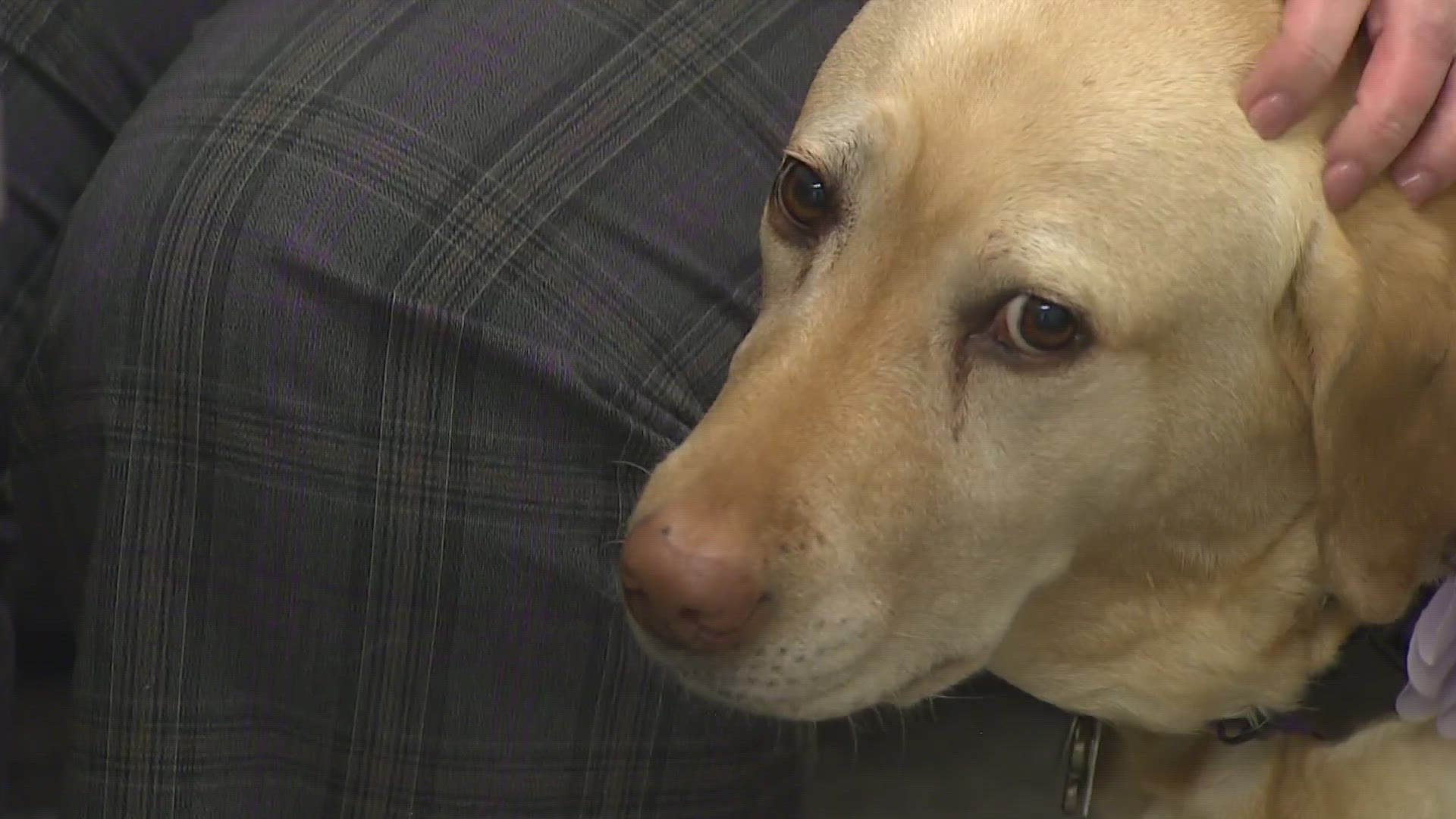SEATTLE — April is Child Abuse Prevention Month, and in King County, a team on the front lines of that work are dedicated to providing victims with safety, healing, and justice.
Alyssa Layne, a forensic interviewer, works side by side with Rivera, a service dog.
"She came to me fully trained at about age two from a wonderful organization called Canine Companions for Independence," said Layne.
Together they cover half of King County. Providing comfort in times that are often chaotic is Rivera's role.
"She's actually trained to sort of alert to changes in people's breathing, like if they become emotionally upset, and their breathing changes. She alerts to that and kind of snuggles in closer to them,” Layne explained.
Victims and witnesses to crimes who are children, teens, or vulnerable adults are interviewed by Layne in a room. Cameras capture the conversation so detectives can take notes in an office next door.
"It's something that's incredibly difficult to talk about,” said Layne.
Most of the cases involve sexual abuse, and she said it is more prevalent than many people realize.
"More conservative estimates are that one in ten children will experience some form of sexually inappropriate contact during their childhood,” said Layne.
Layne reached a milestone last month, completing her 6,000th interview. Her mission is to continue to be a supportive presence.
"One message that I think is so important is for people to know: it's never too late to talk about past abuse experiences,” said Layne.
"I focus on the upside of the hope and the resilience and the strength in the people that I talk with,” she said. “That keeps me keeps me going and keeps me happy in this work."
In her role, Layne also testifies at trials, usually about 20 times a year. She works for the Children’s Justice Center in King County which is one of the 900 nationally accredited children’s advocacy centers through the Unite States.
If you or someone you know has been a victim of sexual assault, you can call the National Sexual Assault Hotline at 1-800-656-4673. Additional resources are available on the Washington State Department of Health's website.

